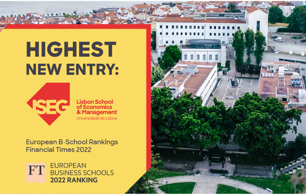From a volatile, uncertain, complex, and ambiguous (VUCA) world, we have transitioned to one that is fragile, anxious, non-linear, and incomprehensible (BANI). We have all read and heard these expressions countless times, helping us understand how the world and society have evolved and how businesses, managers, and employees are affected by these changes. Reskilling and upskilling emerge as a response to the need to prepare managers and employees of organizations to navigate these contexts.
Parallel to the various changes society is going through, technology also advances, pushing companies and individuals to develop and acquire new skills. A 2020 study by the World Economic Forum predicted that within the following three years, 42% of essential skills needed for existing roles would change, requiring a different set of skills.
The digital revolution and the emergence of new technologies have accelerated this need, along with the scarcity of individuals with these skills. The "war for talent" has driven companies to offer training and development opportunities to optimize performance (upskilling) or to acquire new skills for different roles (reskilling). The benefits of reskilling or upskilling initiatives are numerous, from having better-prepared employees to meet market and business demands, increasing productivity, reducing turnover, and aligning employees' roles and motivations to create more value for the organization.
It is important to emphasize that while these concepts are closely associated with the development and enhancement of digital and technological skills, they are not limited to the technology sector or industries. It is interesting to see cases of family-owned companies that have successfully adapted to the emergence of new technologies.
A great example of this is Casa Mendes Gonçalves. Founded in 1982 in Golegã, the company owns well-known brands of sauces, vinegars, and seasonings, such as Paladin. They have based their foundation on product innovation, sustainability, and the technological and productive modernization of their factory, enabling them to expand their business and internationalize. Today, Casa Mendes Gonçalves owns three active brands, sells to 40 countries, and employs over 300 people dedicated to creating value and innovation in the sauces, vinegar, and seasonings market. Carlos Mendes Gonçalves, Chief Executive Officer of Dream and Instability and founder of the company, believes that the future of the company depends not only on its employees but also on a culture of continuous learning and training, innovation, attention to consumer needs, and constant international benchmarking, contributing to the success of the company and the surrounding community.
Often, challenges arise in the process of skills development and learning. The effort to develop these skills is demanding, requiring investment and time. However, as mentioned at the beginning, "education and training sometimes have bitter roots, but their fruits are sweet."
Published in RH Magazine







